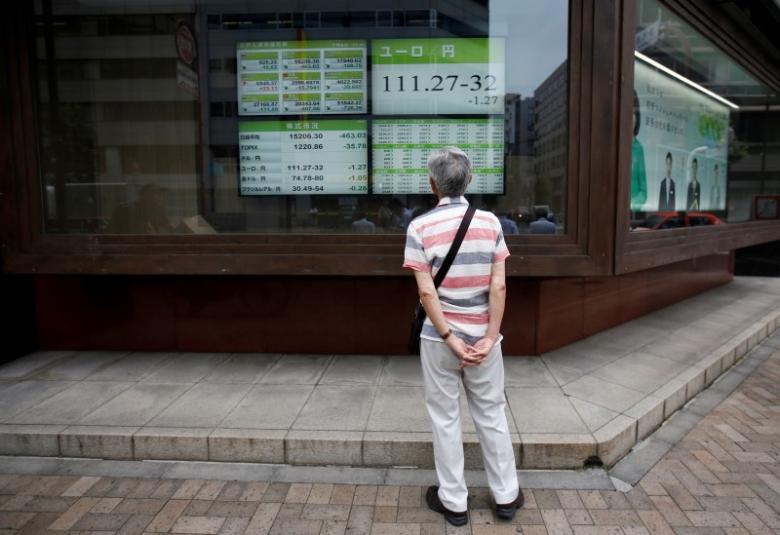Asia stocks slip as Deutsche sours mood, oil gains on OPEC pact
Asian stocks followed Wall Street lower in early trade on Friday, while oil prices held close to the highest level in almost a month on optimism over an OPEC plan to curb output.
MSCI's broadest index of Asia-Pacific shares outside Japan fell 0.5 percent, on track for a 0.4 percent drop for the week. It is poised for a 2.2 percent gain in September, and a 9.5 percent jump in the third quarter.
Japan's Nikkei retreated 1.5 percent after sluggish consumption data. It is down 1.7 percent for the month, but set to end the quarter 5.7 percent higher.
Some Bank of Japan board members doubted whether the central bank's overhaul of its massive stimulus programme, announced last week would enhance flexibility of monetary policy, a summary of opinions at the central bank's September rate review showed on Friday.
Japanese consumer prices in August fell 0.5 percent from a year earlier, missing expectations. Consumer prices in the Tokyo area in September dropped 0.5 percent, the fastest year-on-year drop since 2013.
Japanese industrial output rose 1.5 percent, beating expectations for a 0.5 percent rise.
South Korea's KOSPI slipped 0.8 percent after manufacturing activity contracted for a second month in September to hit a 14-month low, and August industrial output posted the biggest decline in 19 months.
On Thursday, Wall Street lost about 1 percent as Deutsche Bank shares slumped to a record low after a report that trading clients had withdrawn excess cash and positions held in the largest German lender.
The bank's US shares closed down 6.7 percent at $11.48 after earlier falling to as low as $11.185.
The immediate cause of Deutsche's crisis is a fine, disputed by Deutsche, of up to $14 billion by the US Department of Justice over its sale of mortgage-backed securities.
Deutsche's woes, alongside a grilling of Wells Fargo's chief executive by U.S. lawmakers amid a call for the bank to be broken down due to a scandal over its opening of client accounts without agreement, helped push the S&P bank index down 1.6 percent.
Oil prices extended gains, rising more than 1 percent on Thursday, on optimism over an agreement by OPEC to cut output, but the rally was limited by doubts the reduction would make a substantial dent in the global crude glut.
US crude futures added 1.7 percent to $47.83, after climbing to as high as $48.32, the highest level in almost five weeks. They were little changed on Friday.
Brent crude rose 1.1 percent to $49.24 on Thursday, after earlier touching a three-week high of $49.24.
The US dollar was little changed at 101.09 yen, heading for a flat end to the week, but down 2.2 percent for September, and 2 percent for the quarter.
While the yen is headed for its third straight quarter of gains, speculation that Japanese investors may buy more foreign assets in their new business half-year starting from Oct. 1 could stem the Japanese currency's gains in the near term.
The euro was also steady at $1.12165, on track for a 0.1 percent decline for the month, but up 1 percent for the quarter.
The Indian rupee posted its biggest drop since June on Thursday, after Indian officials said elite troops crossed into Pakistan-ruled Kashmir and killed suspected militants preparing to infiltrate and carry out attacks on major cities, in a surprise raid that raised tensions between the nuclear-armed rivals.






